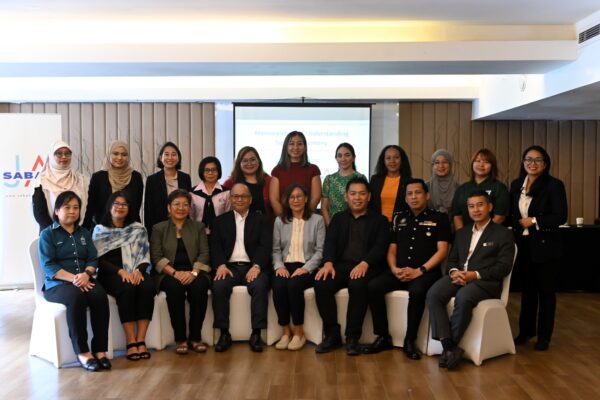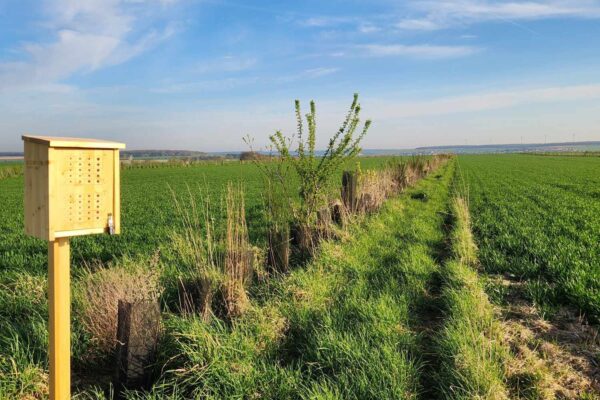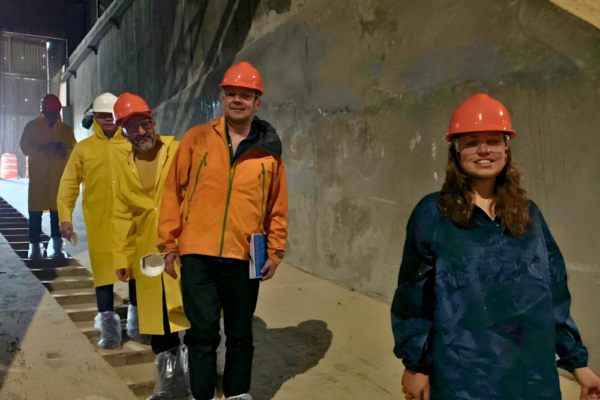6 min read
The Leuser Alas-Singkil River Basin (LASR) project in Indonesia, a three-year initiative funded by the Swiss State Secretariat for Economic Affairs (SECO), has been entrusted to a consortium consisting of Swisscontact, Earthworm Foundation, and Koltiva.
The main objective is to tackle land-use change and peatland encroachment in Aceh Singkil province, Aceh Tenggara, and Subulussalam, which are threatened by unsustainable agricultural practices. The project focuses on two key objectives: mapping sustainable supply chains and improving local policies for sustainable land-use planning.
Last May, the Head of Swiss Economic Cooperation and Development (SECO) in Indonesia, together with the LASR consortium consisting of Swisscontact, Earthworm Foundation, and Koltiva, embarked on a significant visit to formally inaugurate the project in the Subulussalam and Aceh Singkil districts.
Philipp Orga, Head of SECO in Indonesia, emphasised the project's aim to promote sustainable commodity production, create economic opportunities for farmers, and combat climate change. He highlighted the strength of collaboration between public and private partners as a cornerstone of the LASR project.
The delegation visited Subulussalam, where a launch event brought together representatives from the three districts, the LASR consortium, government officials, local communities, the private sector and media partners. The group also had the opportunity to meet with PT Samudra Sawit Nabati and PT Laot Bangko, two local companies committed to sustainable development.
A visit was organised to SMKN Sultan Daulat (vocational agricultural high school), where Earthworm Foundation provides active technical assistance. Their efforts aim to meet the challenges of agricultural regeneration by aligning the curriculum with market demands and facilitating internships in Earthworm Foundation pilot projects.

After a day of various activities, the group visited Sepadan Village. They witnessed Koltiva's interventions in supporting palm oil smallholders to improve their agricultural practices and prepare for RSPO certification. The group also observed demonstrations of Koltiva's mobile applications for farmers, such as FarmCloud, which enables them to access knowledge about sustainable palm oil cultivation, connect with retail shops to purchase high-quality agri-inputs, and receive weather advisories. These tools and Koltiva's feet-in-the-field support are crucial in improving community livelihoods and fighting against land use change in the landscape.
The delegation set off on a boat journey along the Lae Soraya River, stopping at Pasir Belo Village within the Leuser Ecosystem area. There, they engaged in discussions with village forest management officials, explored the protected forest area, discussed forest boundaries, and exchanged insights on challenges related to effective forest protection.

Christina Rini from Swisscontact stressed the importance of recognising the communities' need for incentives to preserve the forests.
“Given that economic growth and the welfare of these communities take precedence, it’s imperative that we prioritise their needs. Failing to offer suitable incentives or viable alternative sources of income could lead to encroachments upon the forests. This is the fundamental directive that will guide our collaboration efforts: ensuring the longevity of Indonesian forests while safeguarding the economic well-being of these communities.”

The LASR consortium collaborates with national and local governments to implement a comprehensive landscape action plan. Its primary goal is to address the factors driving land-use change by eradicating unsustainable practices from supply chains and safeguarding protected forest and peatland areas.
There are two key environmental objectives. Firstly, mapping sustainable palm oil and cocoa supply chains across the landscape is underway. This effort enhances stakeholders' understanding of the risks associated with land-use change and habitat loss. Such insights may lead to increased returns for participants in the value chain through higher prices and premiums for sustainably traded commodities.
Secondly, the consortium is committed to tackling the drivers of land-use change and peatland encroachment by enhancing district-level policies and procedures for sustainable land-use planning, with a strong focus on environmental protection.
Kasraji Mustari, the Aceh Landscape Manager at Earthworm Foundation, underscores the importance of collaborative efforts with farmers to address land-use change and curb encroachment.
He explains, "We engage closely with communities, employing a participatory approach to develop a land-use plan. This approach encourages designated areas within the village to work together, ensuring that the land-use plan aligns with the local action plan and government regulations. We strive to support farmers by facilitating their adherence to the Participatory Land Use Plan (PLUP). This involves promoting horticulture and enhancing palm oil productivity. Our aim is for communities not to expand into new land areas but to see an improvement in their well-being as their productivity increases."

The integration of Starling technology plays a pivotal role in verifying reduced tree cover loss, improved preservation efforts, and real-time monitoring of changes in forestry and land use.
The LASR project extends its reach to address significant social concerns, including reducing conflicts over land tenure in a core target area encompassing 30 villages crucial for mitigating drivers of land-use change within the landscape. Earthworm Foundation has conducted assessments in these 30 villages in Subulussalam, leading to planned interventions to reduce the risk of future conflicts. Moreover, the project's economic objective focuses on increasing smallholders' income from the main staple crops, while creating alternative livelihoods.
The LASR approach operates on two levels. The first layer involves a deep-dive jurisdictional district-level approach, focusing on Subulussalam, Singkil, and Aceh Tenggara Districts, all part of the Alas-Singkil River Basin. The second aspect pertains to scaling up sustainable production, particularly within local companies and smallholder communities engaged in oil palm cultivation.
The LASR project is a collaborative effort co-funded by the Swiss Government, represented by the Swiss State Secretariat for Economic Affairs (SECO), in partnership with Earthworm Foundation, Swisscontact, and Koltiva.


